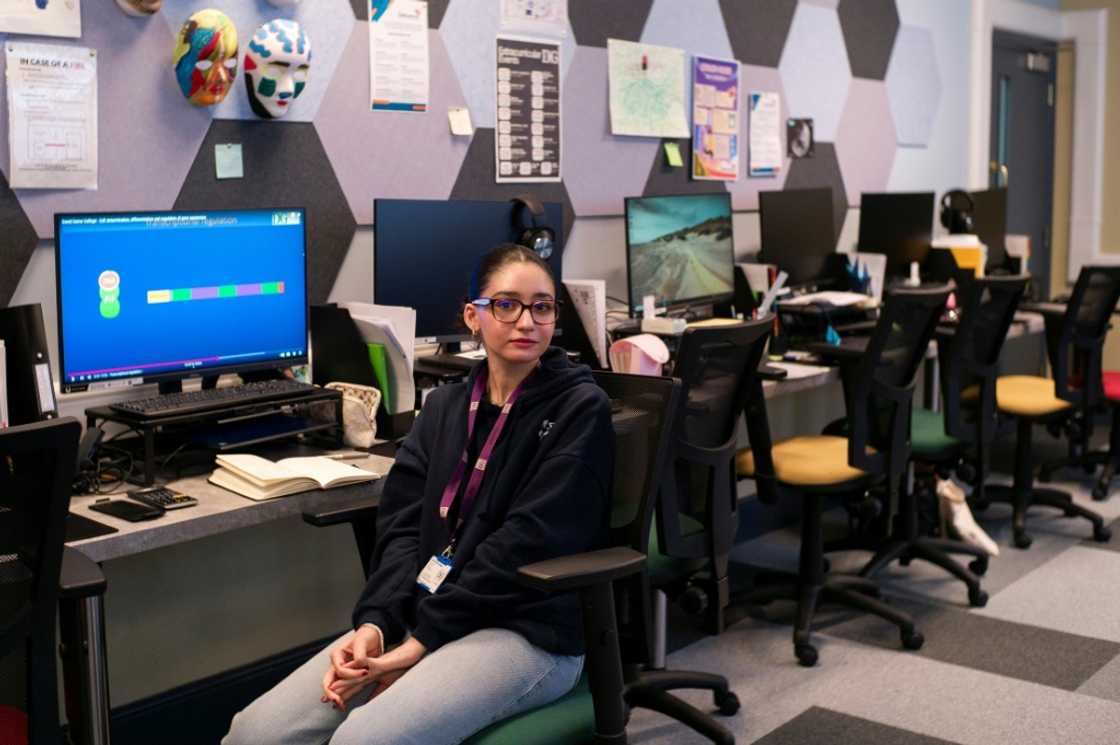
Britain's first technology-lead teaching-free classroom may be an "outlier," but it highlights the potential advantages and disadvantages of a UK government push to implement artificial intelligence in education, experts say.
The David Game College, a private institution situated in central London, has now been in a trial phase for nearly six months. During this trial, students are learning core subjects for the GCSE state exams, typically taken by 16-year-olds, with the aid of AI platforms.
"Transformations in teaching and education will be driven by AI, and it is certain that this technology will not be disappearing," stated co-principal John Dalton, emphasizing the need for people to be adaptable and to incorporate this technology into their practices.
The AI systems "monitor" how students respond to the course material and provide the school with "feedback about their learning habits", he explained.
This month, UK Prime Minister Keir Starmer outlined a plan to harness the power of artificial intelligence and committed to transforming Britain into a leading "AI superpower".
The government claims the technology can assist educators in planning and grading lessons and has created its own AI lesson assistant called "Aila" aligned with the UK's national curriculum.
The class at David Game College employs real-life "learning coaches" rather than traditional teachers. These coaches are certified educators but may not necessarily be subject matter experts. Their primary role involves assisting students in navigating AI systems to learn various subjects. Additionally, they offer guidance in areas such as debating and financial literacy through mentorship.
The pilot, which currently has seven students and plans to have one coach, is a "leap of faith," Dalton confessed.
Dalton, a biology teacher, explained to AFP that AI platforms can evaluate a student's knowledge "with a higher degree of precision than your typical teacher" to facilitate more personalized instruction.
"I firmly believe that artificial intelligence will fundamentally enhance and modify the responsibilities of teachers," he said.
'Efficient'
However, Rose Luckin, a professor at University College London (UCL) who specializes in artificial intelligence in education, noted that AI was an "outlier" and its future in British classrooms is uncertain.
While she agreed that the technology would change the role of teachers, Luckin said that it was "impossible" to predict what that role might become.
We shouldn't dismiss these attempts without even trying them, because if we don't test them, we'll never know their effectiveness.
Student Massa Aldalate, 15, has been won over to learning with the use of artificial intelligence.
"At the outset, I was uncertain regarding this situation. However, upon having experience with it for an extended period of time, one can clearly observe the evidence for it," she said, sitting on a rotating chair surrounded by numerous computer systems.

Does she regret a traditional classroom environment? "Not really," she replied, noting that people often attach "sentimental value" to the idea of a classroom.
It's much more efficient for your studies to be conducted in this manner.
One of her favorite subjects is English, although she had been worried about how an artificial intelligence platform would approach the creative subject.
Marsh said the phrases worked even when the teacher wasn't present, which was a welcome breakthrough for her.
The task is right there in front of you. Simply fill out the questions as you see fit, and it should make sense.
'Unequal access'
The National Education Union, one of the UK's two major teacher unions, expressed its satisfaction with the government's recent emphasis on providing training for teachers on the effective use of digital tools.
But Daniel Kebede, general secretary of the NEU, warned the government's goals should "be matched by substantial investment in technology and IT infrastructure for schools".
And Luckin questioned "exactly how effective is this AI tutor", adding she hoped the pilot would provide "solid evidence" on whether AI is having a positive or negative impact.
She also expressed concerns that students aren't getting enough opportunities for social learning, although the college says students have ample time with their peers.
The programme is effective in identifying areas where a student requires additional learning support.
The eye-watering annual investment of £27,000, more than £10,000 higher than the standard cost of private schools in the UK, makes the model an "elite" one, according to Luckin's statement.
She also pointed out the issue of unequal access to technological infrastructure and data resources.
According to Luckin, the college's "high ratio of coach support to individual" is also "not something that can be easily replicated".
We must draw insights from these cases, yet I don't consider them indicative of the future for all individuals.
